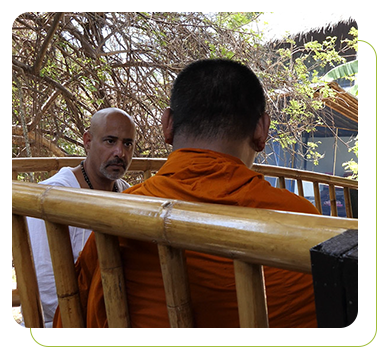The Rise of Ketamine Abuse in the UK: A Global Addiction Problem
05 min read

Introduction: The Silent Surge of Ketamine Use in the UK
What Is Ketamine and Why Is It Popular?
Ketamine is a dissociative anesthetic known for its hallucinogenic and numbing effects. Originally used in surgical settings, it’s now widely misused as a recreational party drug, especially among the UK’s youth. Nicknamed “K” or “Special K,” it’s praised for its euphoric highs and dissociative states—but repeated misuse comes with dangerous physical and psychological consequences.
Recreational vs. Therapeutic Use: A Blurred Line
While small, medically controlled doses of ketamine are used to treat conditions like depression, recreational users typically self-administer large quantities in uncontrolled environments. This increasing trend is pushing ketamine beyond experimentation—into the realm of full-scale addiction.
Ketamine Addiction Trends in the UK
Recent Statistics and Surveys (ONS, NDTMS)
The UK has seen a sharp rise in ketamine-related harms in recent years:
ONS data (2023) revealed a 48% increase in hospital admissions linked to ketamine use compared to five years ago.
The National Drug Treatment Monitoring System (NDTMS) shows a year-over-year rise in clients seeking help for ketamine dependency.
Among young people aged 16–24, ketamine use doubled between 2017 and 2022.
Who’s Most at Risk? Age, Gender, and Social Demographics
Young men aged 18–29 are most likely to use ketamine recreationally.
Students and clubgoers in urban areas like London, Manchester, Bristol, and Glasgow report high frequency of use.
LGBTQ+ communities, who face higher rates of trauma and mental health issues, also show elevated usage rates.
The Influence of Nightlife, Raves, and Festival Culture
Ketamine has become a staple in the UK’s nightlife and electronic music scenes. Its long duration of action and dissociative effects make it popular in clubs and at festivals—but many users underestimate its addictiveness, leading to repeated and compulsive use.

Health and Social Consequences of the UK Ketamine Crisis
Physical Risks: Bladder Damage, Cognitive Decline
Heavy and frequent use of ketamine is linked to:
Ketamine-induced cystitis (chronic bladder inflammation)
Kidney damage
Cognitive decline, including memory loss and poor attention span
Mental Health Impacts: Anxiety, Psychosis, Depression
Psychologically, ketamine users report:
Panic attacks
Depersonalization
Persistent depression and anxiety
In some cases, drug-induced psychosis
Relationship Strain and Societal Costs
Chronic ketamine use affects not just the individual but their:
Family life
Romantic relationships
Work productivity
It also puts strain on NHS mental health services, already stretched thin.
Ketamine Use Around the World: Global Patterns and Comparisons
Ketamine Use in Europe, Australia, and Asia
Australia and New Zealand report increased recreational ketamine use among youth.
Parts of Europe (especially Spain and the Netherlands) are seeing spikes in festival-related consumption.
In China and Hong Kong, ketamine was once the most-used illicit drug among young adults, leading to national crackdowns.
Global Policy Responses to Recreational Ketamine
The UK classifies ketamine as a Class B drug, with penalties for possession and distribution.
Other countries, like Australia, treat ketamine as a Schedule 8 controlled substance.
Yet policy alone hasn’t stemmed the tide—treatment access and public education are more effective.
What the UK Can Learn from Global Prevention and Treatment Models
Countries with stronger early-intervention programs, harm-reduction education, and access to holistic rehab models (like those offered in Thailand) tend to have better outcomes in managing ketamine-related harm.

Treating Ketamine Addiction: What Works
Inpatient vs. Outpatient Rehab Options in the UK
NHS and private centers offer limited outpatient services.
For severe dependency, inpatient rehab is more effective, providing detox, therapy, and a controlled environment.
Limitations of NHS and Local Clinics
Long waiting lists (3–6 months for detox in some areas)
Overburdened mental health services
Limited access to trauma-informed or holistic therapies
The Role of International Rehab—Why People Look Abroad
Immediate admission
More comprehensive programs
Better staff-to-client ratios
Escape from triggering environments

Why UK Clients Choose Holina Rehab in Thailand
Distance for Clarity: Getting Away from Triggers
Many UK clients report that getting out of their local environment gave them a fresh perspective and the space to reset. Being far from home helps break patterns, cut ties with enablers, and start healing.
Private, Affordable, and Effective All-Inclusive Recovery
Holina offers:
Medical detox
Luxury accommodations
Daily holistic therapies
All-inclusive packages that often cost less than private UK rehabs
Cultural Familiarity and UK Peer Support Abroad
Holina’s staff includes English-speaking therapists and recovery coaches. Plus, many current and former clients are from the UK, fostering a familiar support network abroad.
Testimonials from UK Clients at Holina
Steve R (UK, 2025)
“Trauma and addictions are dealt with in a truly holistic manner, combining eastern and western techniques. The staff and counsellors are not only trained and experienced, but extraordinary.”
Mon (2025) and Nish (2024)
Mon: “My recovery went better than I ever thought possible. The program structure and therapies are beyond anything I expected.”
Nish: “Luxurious surroundings, highly skilled and compassionate staff. Changed my life for the better.”
Frequently Asked Questions (FAQs)
How common is ketamine addiction in the UK?
Use is on the rise, especially among 18–24-year-olds. NHS data and ONS reports show a steady increase in hospital admissions and treatment demand.
What’s the most effective treatment model?
A holistic, inpatient program with detox, trauma therapy, and long-term support provides the best outcomes for sustained recovery.
Can I travel abroad for rehab during or after crisis?
Yes. Holina assists UK residents with travel plans, visas, and airport transfers. Many clients arrive within 72 hours of initial contact.
Is ketamine more dangerous than other club drugs?
Yes and no. While it’s less addictive than opioids, ketamine causes severe cognitive, emotional, and bladder damage when abused long-term.
What’s the waiting time for treatment in the UK?
Public treatment via the NHS can involve months-long waits. Private options are faster, but often expensive and less comprehensive than overseas programs.
Does Holina work with UK clients post-treatment?
Yes. Holina offers online aftercare, weekly check-ins, and relapse prevention coaching, all accessible from the UK.
Conclusion: Global Support for a Growing Crisis
Healing Is Possible, No Matter Where You Are
The rise of ketamine addiction in the UK is real—but so is recovery. You don’t have to wait months or fight the system to get help. Holina offers a path forward, now.
Holina Is Here to Help
Holina Rehab Thailand welcomes clients from across the UK with open arms, clinical expertise, and a soul-centered recovery model.
📞 Speak to Our UK Admissions Team: +66 (0) 626 418 369
🌐 Learn more: holinarehab.com
About Me
Ian Young
Ian Young is the Global Manager at Holina Care Centres in Koh Phangan, Thailand. Ian oversees the rehabilitation programs that blend the 12 Step model, Psychology, Counselling, Coaching, Somatic and many other therapeutic engagements, alongside various evidence-based therapies with holistic healing practices. Holina Rehab treats addictions, trauma, anxiety, depression, and other emotional challenges, offering comprehensive care in a serene resort environment. Ian, a charismatic speaker and author of “It’s Not About Me” leveraging his own recovery journey from addiction to inspire and guide others toward a fulfilling, addiction-free life.
Recent Blogs
-
29 Nov, 2025
The Power of Community in Addiction Recovery





























